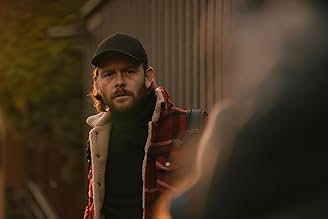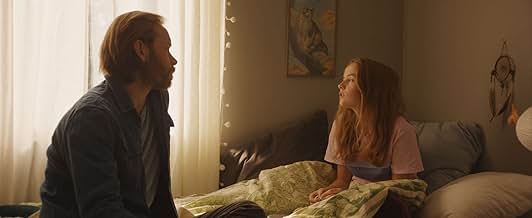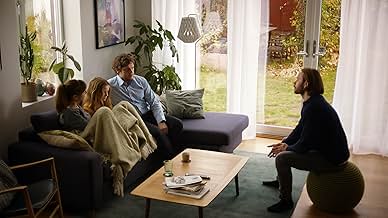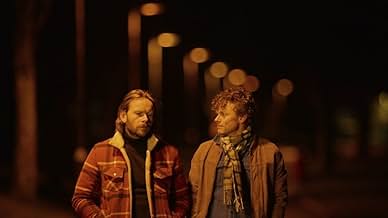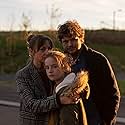Barn
- 2019
- 2h 37m
Lykke (13), the daughter of a prominent Labour Party politician, has accidentally beaten her classmate Jamie, the son of a local right wing-politician, to death. Lykke claims Jamie's death w... Read allLykke (13), the daughter of a prominent Labour Party politician, has accidentally beaten her classmate Jamie, the son of a local right wing-politician, to death. Lykke claims Jamie's death was an accident, but nobody believes her. The school's principal, Liv, is an idealist who, ... Read allLykke (13), the daughter of a prominent Labour Party politician, has accidentally beaten her classmate Jamie, the son of a local right wing-politician, to death. Lykke claims Jamie's death was an accident, but nobody believes her. The school's principal, Liv, is an idealist who, against her political beliefs, has been living in a secret relationship with Karl Erik, Ja... Read all
- Director
- Writer
- Stars
- Awards
- 14 wins & 5 nominations total
- Director
- Writer
- All cast & crew
- Production, box office & more at IMDbPro
Featured reviews
The film starts with it's turning point right away: A 13 year old boy is treated by an ambulance crew in an Oslo suburb school yard fotball field after what seems like a violent episode involving a girl at the same age. She tells she was "just kidding" but admits to hitting her class mate with her rucksack. The boy dies just after reaching hospital, and the school goes into crises mode. What makes it worse is that the scholl's freemale principal actually is having an affair with the boys single father, a right wing politician. The girl's parents are left wings, and the father actually a member of parliament. The film is about what happens, and what is said around the scholl environment and at their homes in the aftermath.
Just like his first feature "I belong" ("Som du ser meg" = "The way you see me") this film is really about human communication. I guess the way we communicate is something which interests director Haugerud quite a lot. and it is really interesting as well, and becomes very clear in his movies. Communication, and here as personal, and not so much through all kinmds of media, which many latter fils have as a theme, is based on so many factors. All humans social communcation is based upon upbringing and environment, and dealing with such a profond tragedy is a difficult matter for all. We was to blame? Was it an accident? Could this have been prevented? Who feels guilt? What was the reason for this? What do you say? What can be said? How de poople react? How can one deal with such a tragedy? How do the people around the main involved react? How can they help? What can't be said? What is said behind their backs? Well, still life has to go on. Even trivial talking about curtains and dinner.
The film two and a half hour long, which is a bit lenghty, but none in the cinema seemed to feel it too long. Me neither. Still I think many will think it's too long. However, it was very different, and quite interesting, though a tiny bit too subtle for to me for giving it a 10/10. Still a film I'd recommend, especially for teachers, but certainly also for people working in environments with a lot of people. Much is actually to learn.
With a mobile football gate, in the middle of the playing field of a school in Oslo, which reappears on screen every so often as a leitmotiv, the story of «Children» unfolds for 157 minutes. One morning, during a break between classes, next to this football gate, Lykke, a 13-year-old girl, hits Jamie, a classmate of the same age, with her backpack, knocking him down and causing him to die accidentally. The girl will not get tired of repeating the same version: it was an accident, but nobody believes her. The circumstances are complex: Lykke is the daughter of a Labor Party leader, while Jamie's father is a far-right politician. In addition, the school principal maintains a secret relationship with the "neo-Nazi" politician; and her brother, a teacher, who was in charge of taking care of the children, was not present in the playing field when the events occurred, escorting a young and attractive intern.
Besides Lykke, the politician, the director and her teacher brother, several secondary characters are outlined with few but precise strokes, as an effective example of a contemporary society with great social advances, which debates the prospects of the future, with a central objective: the education of children. Making a film on this subject is not an easy task and making it enjoyable is a more challenging exercise. Director-screenwriter Dag Johan Haugerud deals with the formative ethics of teachers and parents, the debate between "political correctness" and a less rigid education, without neglecting the human side, the conflicts of ideologies and dogmas interfering in the affections and the class rooms, with Lykke always at the center, affected by the evolution of events.
With excellent performances from the entire cast, the two actors that attracted me the most were Ella Overbye as Lykke and Thorbjorn Harr as the right-wing politician. She, on the one hand, plays a lucid, fragile and vulnerable young girl; and while he is effectively terrifying, when the most cruel and authoritarian side of the man wins over the fragility of the hurt father.
Did you know
- SoundtracksIkke en spurv til jorden
Written by Ingeborg Prydz Fougner and Ivar Skippervold
Performed by Jan Gunnar Røise
- How long is Barn?Powered by Alexa
Details
- Release date
- Countries of origin
- Language
- Also known as
- Beware of Children
- Filming locations
- Oslo, Norway(location)
- Production companies
- See more company credits at IMDbPro
Box office
- Gross worldwide
- $183,594
- Runtime2 hours 37 minutes
- Color
- Aspect ratio
- 1.85 : 1
Contribute to this page



